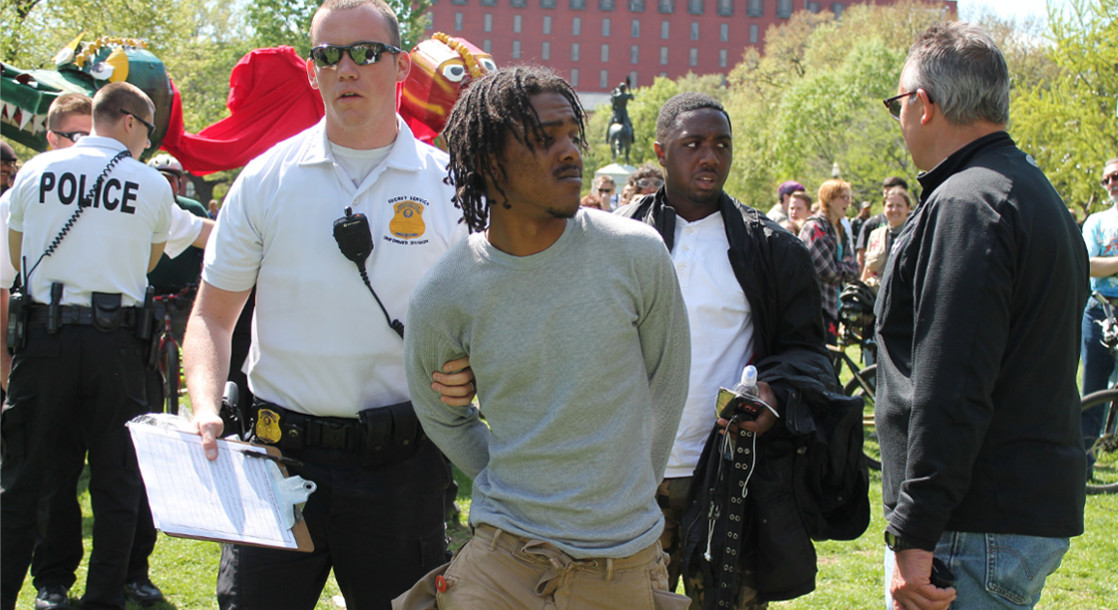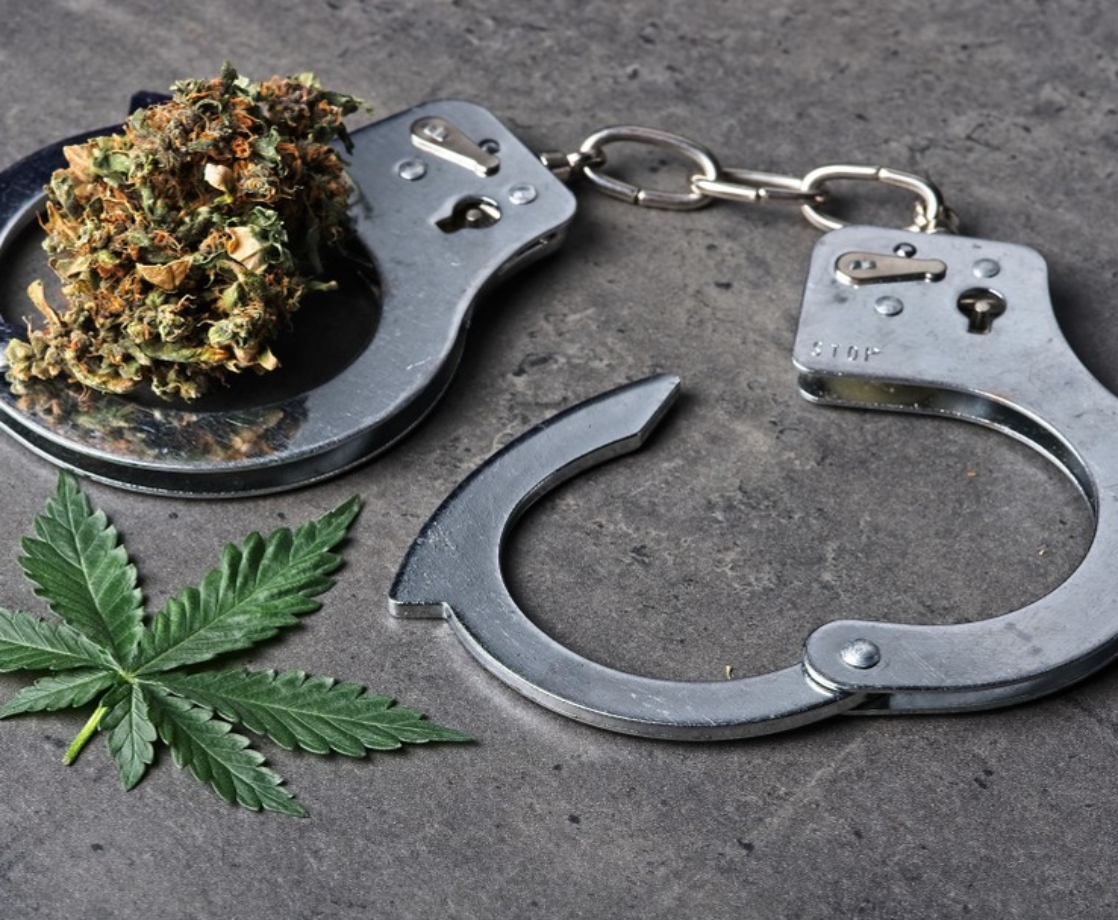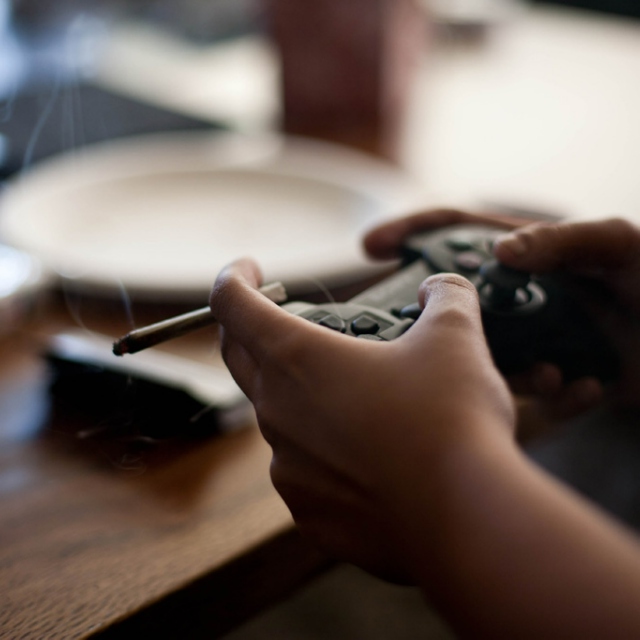Photo via Elvert Barnes
A new report from the decriminalization advocacy group Drug Policy Alliance (DPA) paints a mostly glowing picture of legal weed in the United States, including economic booms, reductions in opioid use, and decreases in teen consumption. But while Californians, Coloradans. and millions more experience unprecedented cannabis freedoms, the report once again highlights America’s racist police practices, reporting that black and brown residents in legal weed states are still subject to cannabis-related arrests at a significantly higher rate than their white peers.
According to the DPA report, “From Prohibition to Progress: A Status Report on Marijuana Legalization,” total cannabis arrests in legal weed states have declined sharply since legalization, with Colorado experiencing an 88% drop between 2012 and 2015 and Oregon decreasing pot stops by 96% from 2013 to 2016.
At first glance, those statistics seem to indicate a radical shift in police procedure, suggesting that cops in legal weed states have listened to voters and lawmakers and actually moved onto more significant work. Look one layer deeper though, and the picture becomes murkier. While a dip in the sheer number of arrests is encouraging, the report’s demographic data shows that America’s legacy of racist policing has indeed continued through cannabis legalization.
“Even after legalization, racial disparities in the enforcement of the remaining marijuana-related offenses have persisted,” the DPA report remarks.
“Racial profiling needlessly entangles communities of color, youth and young adults, in the criminal justice system for nonviolent activities that are not enforced in other communities, such as public marijuana use. The targeted enforcement of minor marijuana-related activities (as well as other petty offenses) ensnares hundreds of thousands of people in the criminal justice system while breeding mistrust of the police in these targeted communities, thereby reducing public safety.”
In a deep dive into the data behind the DPA study, Color Lines reporter Alfonso Serrano highlighted a 2016 Colorado Department of Public Safety report that shows cannabis-related arrests decreasing by more than 10% for white teenagers, while similar arrests increased by 50% for black teens.
As adult-use and medical legalization laws spread from coastal liberal bastions to Middle America, data will continue to emerge about the changing landscape of cannabis policing, but in the meantime, a number of individual cases have shown just how much work is still left to be done before reform and justice start to coincide.
In a look at the consistent policing threats against black women and their place in the changing tide of cannabis legalization, Huffington Post writer Ja’han Jones returns to the recent arrest of more than 60 mostly black and brown youth over one bag of weed at a house party in Cartersville, Georgia, detailing the inhumane treatment of dozens of young people of color for even being in the presence of a bag of weed, nevermind actually smoking it.
“You sit up there and look at a man who’s doing his job,” Nija Guider, one of the women arrested at the Georgia houseparty told the Huffington Post about her experience in jail, “while you can literally feel your life turning to shambles. You can feel it.”
It’s an amazing experience to be able to watch cannabis transition from outlawed weed to legal cash crop, but without also seeking justice for the people who were most seriously harmed by prohibition, legalization will be never reach its full potential, a sentiment that Jones expressed perfectly: “Reckoning with cannabis use in America is not as simple as legalizing it; not when racial biases within us — deep as the marrow — inflect our every experience with it, in industry, incarceration and elsewhere.”











